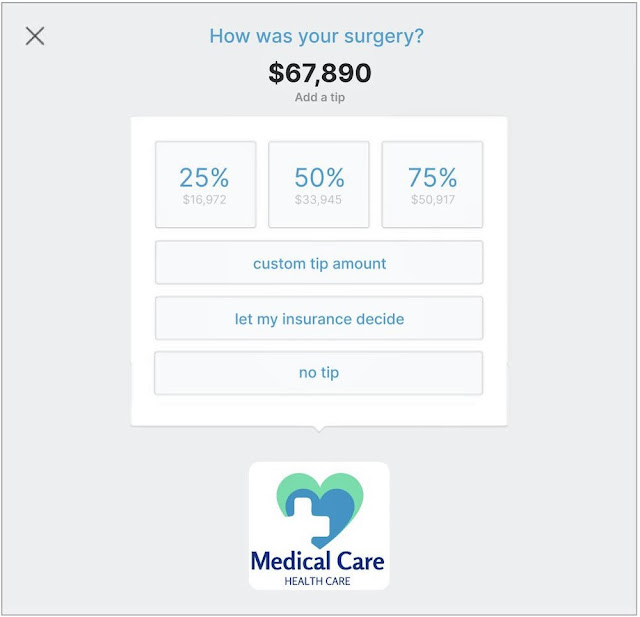Before you start training to gorge at your game day party, tackle this month’s selection of notable news stories, intercepted for you from the Drug Channels gridiron:
- Offsides: My $0.02 on the latest moves by Amazon and OptumRx
- Trick play: OptumRx attacks alternative funding programs
- Offensive line: Shocking Wall Street Journal expose of 340B abuses
- Touchdown! Accumulators and maximizers go mainstream
P.S. Join the nearly 37,000 people who run after me on LinkedIn. You can also chase me at @DrugChannels on Twitter. Every day, I tackle links to neat stuff for you.
Amazon Pharmacy Introduces RxPass: Unlimited Prescription Medications for Only $5 a Month, Delivered Free to your Door—Available Exclusively for Prime Members, Amazon
In our crazy drug pricing system, relatively inexpensive generic drugs are sold at widely varying prices throughout the channel. In response, patient-paid prescriptions that bypass insurance at cash-pay pharmacies and via discount cards are booming.
In cash-pay news, consider Amazon’s RxPass, its latest purportedly “disruptive” move that caused credulous journalists to swoon. Amazon remains the master of the noise-making pharmacy press release.
RxPass offers unlimited prescriptions of 50 generic drugs for a $5 monthly subscription fee—on top of an annual subscription to Amazon Prime. (Unrelated tip for Prime subscribers: Watch The Expanse. Great show.)
Alas, this highly limited program is anything but disruptive. The subscription fees are structured to avoid altering Amazon Pharmacy’s usual and customary (U&C) pricing and third-party reimbursement. The program is also not available for prescriptions covered by Medicare or Medicaid, and can’t be used for prescriptions sent to eight states. These restrictions presumably lower the company’s risk of running afoul of the False Claims Act and various state laws. (Just ask Walgreens about its Prescription Savings Club.)
Coincidentally, OptumRx simultaneously launched Price Edge. (Read the press release.) This new program compares a patient’s out-of-pocket cost under an OptumRx-managed plan with “direct-to-consumer pricing.” Optum Rx has not disclosed the basis for these newly-discovered lower consumer prices, but I presume they come from the company’s Optum Perks program.
Alas, the press release made the mistake of noting: “Optum Rx already offers a lower price nearly 90% of the time.” In other words, 1 out of 10 prescriptions today would have been cheaper without Optum Rx. Whoops! In my post about the Express Scripts/GoodRx partnership, I suggested some reasons why this could occur. But try explaining that to the average American, who might rightly wonder what happened to all of their insurance premiums.
Keep an eye on patient-paid prescriptions. Much more to come.
In cash-pay news, consider Amazon’s RxPass, its latest purportedly “disruptive” move that caused credulous journalists to swoon. Amazon remains the master of the noise-making pharmacy press release.
RxPass offers unlimited prescriptions of 50 generic drugs for a $5 monthly subscription fee—on top of an annual subscription to Amazon Prime. (Unrelated tip for Prime subscribers: Watch The Expanse. Great show.)
Alas, this highly limited program is anything but disruptive. The subscription fees are structured to avoid altering Amazon Pharmacy’s usual and customary (U&C) pricing and third-party reimbursement. The program is also not available for prescriptions covered by Medicare or Medicaid, and can’t be used for prescriptions sent to eight states. These restrictions presumably lower the company’s risk of running afoul of the False Claims Act and various state laws. (Just ask Walgreens about its Prescription Savings Club.)
Coincidentally, OptumRx simultaneously launched Price Edge. (Read the press release.) This new program compares a patient’s out-of-pocket cost under an OptumRx-managed plan with “direct-to-consumer pricing.” Optum Rx has not disclosed the basis for these newly-discovered lower consumer prices, but I presume they come from the company’s Optum Perks program.
Alas, the press release made the mistake of noting: “Optum Rx already offers a lower price nearly 90% of the time.” In other words, 1 out of 10 prescriptions today would have been cheaper without Optum Rx. Whoops! In my post about the Express Scripts/GoodRx partnership, I suggested some reasons why this could occur. But try explaining that to the average American, who might rightly wonder what happened to all of their insurance premiums.
Keep an eye on patient-paid prescriptions. Much more to come.
Alternative funding: Real savings or problems?, OptumRx
In The Shady Business of Specialty Carve-Outs, a.k.a., Alternative Funding Programs (AFPs), I explored the sleazy new programs that exclude specialty drug coverage, thereby forcing patients into charitable foundations so their plans can save money.
If you can’t get enough OptumRx, check out its pharmacy benefit manager (PBM) perspective on these programs. It argues that plan sponsors face higher—but hidden—costs from AFPs. OptumRx makes many valid points, so I encourage you to consider its arguments.
For a more cynical perspective, click here for my $0.02 on why PBMs prefer copay maximizers to AFPs.
If you can’t get enough OptumRx, check out its pharmacy benefit manager (PBM) perspective on these programs. It argues that plan sponsors face higher—but hidden—costs from AFPs. OptumRx makes many valid points, so I encourage you to consider its arguments.
For a more cynical perspective, click here for my $0.02 on why PBMs prefer copay maximizers to AFPs.
Many Hospitals Get Big Drug Discounts. That Doesn’t Mean Markdowns for Patients., The Wall Street Journal
Surprise? Another independent, credible source uncovers massive grift and greed in the 340B Drug Pricing Program. Once again, we discover that this program has zero transparency, no accountability, massive financial diversion, and outright fraud. This disturbing article is worth your time.
Employers Use Patient Assistance Programs to Offset Their Own Costs, Kaiser Health News
This story won't be news to the savvy folks who read Drug Channels. But it’s notable that a new perspective on copay programs is starting to emerge. See also How Copay Accumulators and Maximizers Have Changed Payers’ View of Copay Support.
American healthcare, with tipping culture, @0xgaut
My new favorite meme about the future of U.S. healthcare. Or perhaps I shouldn’t give hospital executives any ideas?
[Click to Enlarge]


No comments:
Post a Comment